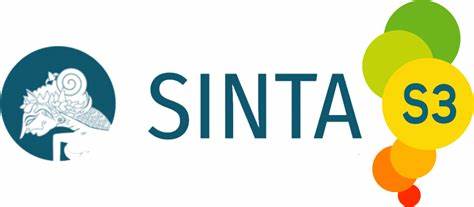INCORPORATING EDMODO AS LEARNING MANAGEMENT SYSTEM OF SUMMATIVE ASSESSMENT IN EFL CLASSROOM
DOI:
https://doi.org/10.22460/eltin.v8i2.p%25pKeywords:
Edmodo, Online Assessment, Summative AssessmentAbstract
This present study aims to find out how an English teacher carries out Edmodo in summative assessment and to find out students’ perceptions doing online assessment through Edmodo in EFL classroom. This basic interpretive study involved thirty students of one of senior high schools in Karawang. The data were collected from the subject of this research directly even via google form and whatsapp by using some instruments, such as: observation sheet, interview guideline, and questionnaire. The present study used semi-structured interview for three interviewees via whatsapp. The researchers also distributed close-ended questionnaire via google form to thirty students. Then, it was analyzed by using Miles and Huberman’s method of data analysis. The finding indicated that the teacher conducts an online assessment using Edmodo with appropriate procedures. Edmodo leads teacher and students’ technological knowledge and Edmodo renders the test practical and motivating. The students perceived Edmodo well as summative assessment although there was a few negative assumption. Most students would prefer to be evaluated through Edmodo instead of the traditional test or paper-based test.
Â
Â
Keywords: keyword Edmodo, online assessment, summative assessment
References
Al-Said, K. M. (2015). Students’ perceptions of edmodo and mobile learning and their real barriers towards them. Turkish Online Journal of Educational Technology, 14(2), 167–180.
Brown, H. D. (2004). Language Testing Book: Principles and Classroom Practice. Book, 314.
Donald Ary, Lucy Cheser Jacobs, Asghar Razavieh, C. K. S. (2009). Introduction to Research in Education Eighth Edition. In آب و خاک.
Ekmekçi, E. (2016). Integrating Edmodo into Foreign Language Classes as an Assessment Tool. Participatory Educational Research, spi16(1), 1–11. https://doi.org
/10.17275/per.16.spi.1.1
Etfita, F. (2019). Students’ Perspective on the Use of Edmodo as an Assessment Tool. J-SHMIC : Journal of English for Academic. https://doi.org/10.25299/jshmic.2019.vol6(1).2516
Fauzi, A. (2017). The Effect of Edmodo on Students’ Writing Skill in Recount Text. IJPTE : International Journal of Pedagogy and Teacher Education. https://doi.org/10.20961/ijpte.v1i2.5038
Gagne, R. M., & M, G. R. (1984). The condition of learning.
Gagne R M. Domains of Learning. Interchange.
Hricko, M., & Howell, S. L. (2005). Online assessment and measurement: Foundations and challenges. In Online Assessment and Measurement: Foundations and Challenges. https://doi.org/10.4018/978-1-59140-720-1
Lin, M. H., Chen, H. C., & Liu, K. S. (2017). A study of the effects of digital learning on learning motivation and learning outcome. Eurasia Journal of Mathematics, Science and Technology Education, 13(7), 3553–3564. https://doi.org/10.12973/eurasia.2017.00744a
Miles, M. A. (1994). Miles and Huberman (1994)- Chapter 4.pdf. In Qualitative Data Analysis: An Expanded Sourcebook.
Ngo, J., & Ngadiman, A. (2019). The Impacts of Edmodo on Students’ Performance in ESP Classrooms. KnE Social Sciences, 3(10), 369. https://doi.org/10.18502/kss.v3i10.3918
Prakash, R., Praveen Kumar, N., Uday Kiran Teja, D., & Lakshmu Naidu, P. (2018). Evaluating Edmodo as a One on One Educational Tool in Helping to Enhance Academic Performance: An Intervention Study. May. www.jrad.co.in
Ridhwan, M. (2017). Understanding Formative and Summative Assessment for EFL Teachers: Theoretical Reflections on Assessment for Learning. J-SHMIC : Journal of English for Academic, 4(1), 40–50. https://doi.org/10.25299/jshmic.2017.vol4(1).505
Siahaan, E. B. (2020). Students’ Perception of Edmodo use as
a Learning Tool. JET (Journal of English Teaching). https://doi.org/10.33541/jet.v6i1.1061
Widiastuti, I. A. M. S., & Saukah, A. (2017). FORMATIVE ASSESSMENT IN EFL CLASSROOM PRACTICES. Bahasa Dan Seni: Jurnal Bahasa, Sastra, Seni Dan Pengajarannya. https://doi.org/10.17977/um015v45i12017p050





